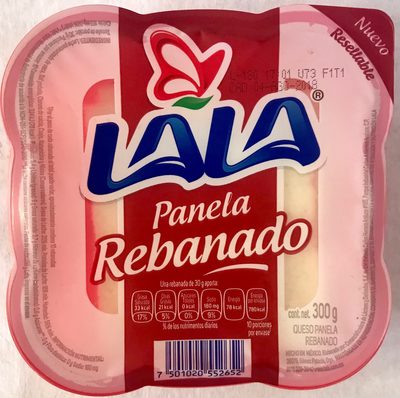Queso Panela rebanado Lala - 300 g
This product page is not complete. You can help to complete it by editing it and adding more data from the photos we have, or by taking more photos using the app for Android or iPhone/iPad. Thank you!
×
Barcode: 7501020552652 (EAN / EAN-13)
Common name: Queso Panela
Quantity: 300 g
Packaging: Plastic, Frozen, Vacuum-packed
Brands: LALA
Categories: Dairies, Fermented foods, Fermented milk products, Cheeses, Mexican cheeses, Panela cheeses
Origin of ingredients: Mexico
Manufacturing or processing places: Durango, México
Link to the product page on the official site of the producer: https://www.lala.com.mx/
Countries where sold: Mexico
Matching with your preferences
Environment
Carbon footprint
Packaging
Transportation
Report a problem
Data sources
Product added on by openfoodfactsmx6
Last edit of product page on by packbot.
Product page also edited by openfoodfactsmx, younescontrib.











